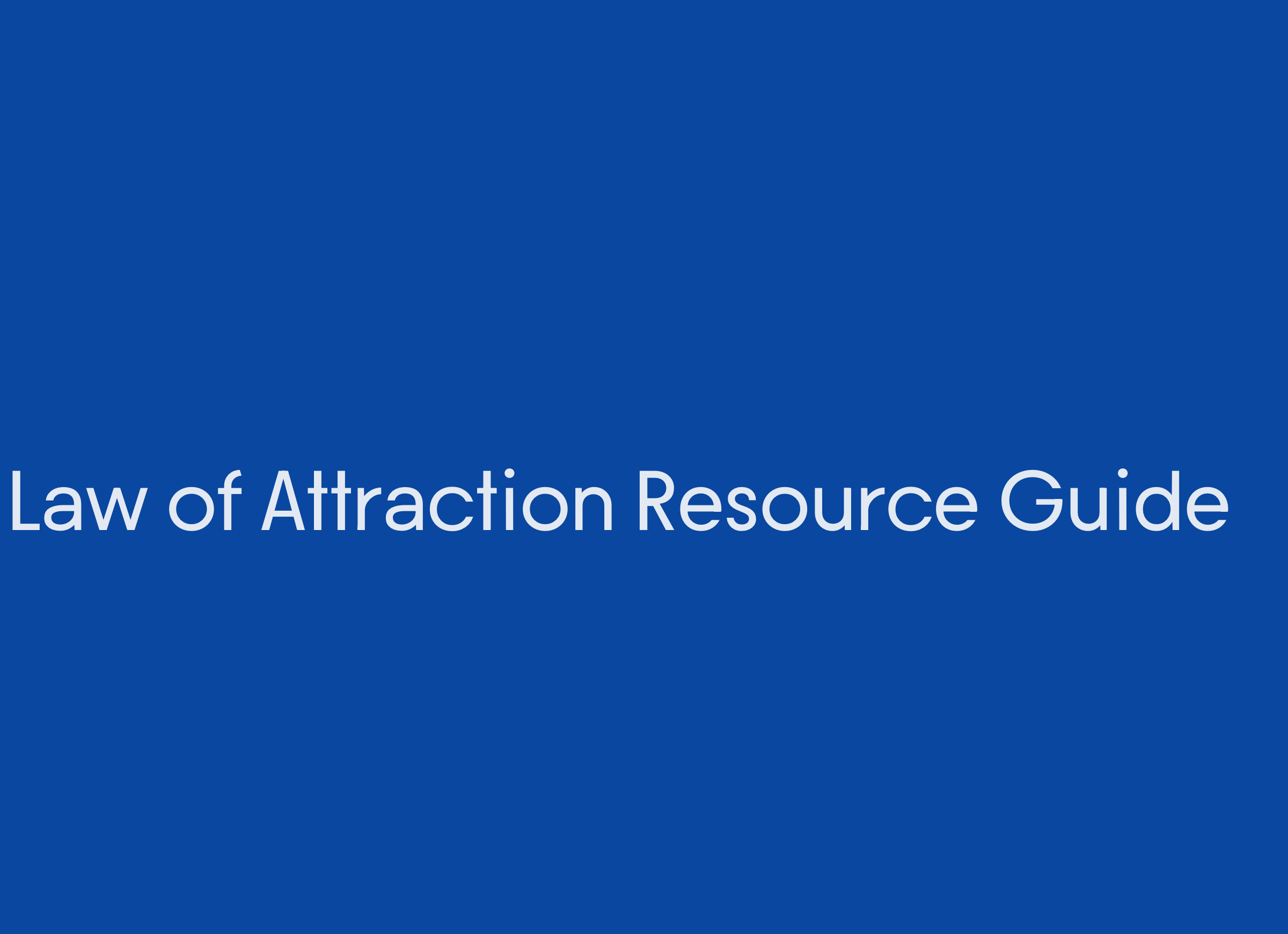Spirituality & Mindfulness
Living in Absolute Well-Being
To live in absolute well-being entails achieving peak psychological health, economic stability, and sustainable happiness – discover essential elements for a fulfilling life ahead.

Living in absolute well-being involves achieving peak psychological and emotional health, a comfortable lifestyle, contentment, and fulfillment. Essential aspects include economic stability, access to healthcare, education, suitable housing, food security, and sustainable well-being for all. Economic stability impacts life satisfaction, healthcare access boosts well-being indicators, education enhances cognitive abilities and economic prospects, suitable housing improves physical and mental health, and food security guarantees happiness. Sustainable well-being guarantees long-term quality of life for all. Embracing these elements fosters a harmonious life of well-being. Further information on enhancing well-being awaits.
Key Takeaways
- Peak psychological health and emotional balance are essential.
- Perception of income and comfortable lifestyle contribute to well-being.
- Access to quality healthcare and education enhances overall well-being.
- Adequate housing and food security are crucial for a fulfilling life.
- Sustainable well-being for all prioritizes essential resources and rights.
Essential Elements of Absolute Well-Being
The key components of absolute well-being encompass aspects such as peak psychological and emotional health. Relative income, a factor often misconstrued in its impact on well-being, plays a significant role in determining an individual's absolute well-being.
Contrary to popular belief, absolute well-being isn't solely reliant on comparing one's income to others or societal standards. Instead, relative income focuses on an individual's perception of their income in relation to their own needs and desires. This means that as long as an individual's income meets their personal requirements and allows for a comfortable lifestyle, their absolute well-being can remain high regardless of how it compares to others.
Understanding the concept of relative income sheds light on the idea that absolute well-being is deeply rooted in internal feelings of contentment and fulfillment, rather than external comparisons. By recognizing that well-being is intricately tied to individual perceptions and needs, one can cultivate a more accurate understanding of how income influences overall happiness and life satisfaction.
Impact of Economic Stability on Well-Being

Economic stability holds a profound influence on individual well-being, particularly in relation to financial security and access to essential resources. Research consistently demonstrates a strong connection between economic stability and overall life satisfaction, indicating its pivotal role in shaping happiness levels.
In economically stable environments, individuals often experience reduced levels of stress and negative emotions, underscoring the significance of financial well-being in fostering a sense of contentment and mental peace.
Economic Stability's Influence
Household income levels greatly influence individuals' emotional well-being and overall satisfaction with life. Research has consistently shown that income plays a significant role in determining subjective well-being.
The correlation between household income and emotional well-being underscores the importance of financial security in people's lives. Absolute income levels are essential in shaping overall life satisfaction and happiness.
Challenges arising from economic instability in different regions and nations further highlight the complexity of how income impacts well-being outcomes.
It's essential not to overlook the negative emotional impact tied to income disparities when examining subjective well-being, as neglecting this aspect can lead to incomplete understandings of the influence of economic stability.
Therefore, a thorough understanding of the relationship between income levels and emotional well-being is essential in addressing the broader implications of economic stability on individuals' overall well-being.
Well-Being and Finances
Given the substantial impact of financial stability on overall well-being, understanding the relationship between income levels and emotional satisfaction is essential.
Here are some key points to keep in mind:
- Household Income and Life Satisfaction: Studies consistently show a positive correlation between household income and life satisfaction. Higher income levels often lead to increased happiness and overall well-being.
- Impact of Poverty on Psychological Well-Being: Absolute poverty, where basic needs can't be met due to low income, can severely affect psychological well-being. It's important to guarantee that all individuals have access to necessities like food and shelter.
- Social Exclusion due to Relative Poverty: Relative poverty, where households earn considerably less than the average, can lead to social exclusion and limited access to essential resources. This can have harmful effects on overall well-being.
- Importance of Addressing Poverty: Advocacy efforts focus on tackling the root causes of poverty, such as lack of affordable housing and healthcare, to enhance both financial stability and overall well-being.
Access to Healthcare and Well-Being

Access to healthcare plays a pivotal role in determining an individual's overall well-being and quality of life, particularly concerning physical health. Studies have consistently shown a positive correlation between healthcare access and various well-being indicators.
In countries with universal healthcare systems, individuals tend to report higher levels of happiness and lower negative emotions due to reduced financial burdens associated with healthcare. Conversely, the lack of healthcare access has been linked to increased stress and anxiety, negatively impacting emotional and cognitive well-being.
Moreover, individuals with adequate access to healthcare are more inclined to engage in preventive care measures, leading to better physical and mental well-being outcomes. The quality and availability of healthcare services in a population have a significant influence on well-being indicators such as happiness and life satisfaction.
Ensuring universal access to healthcare isn't only a matter of physical health but also a critical component in fostering overall well-being and enhancing the quality of life for individuals.
Education as a Pillar of Well-Being

Education stands as a fundamental pillar of well-being, shaping individuals' cognitive abilities, social connections, and economic prospects.
Lifelong learning not only enriches personal growth but also equips individuals with the adaptability needed in a constantly evolving world.
The impact of education on overall well-being is profound, influencing life satisfaction, health outcomes, and the ability to overcome various life challenges.
Importance of Learning
Embracing a culture of continuous learning is essential for individuals seeking to enhance their overall well-being. Education serves as a foundation for personal and societal growth, playing an important role in fostering economic development and individual prosperity.
Here are some key points highlighting the importance of learning in achieving well-being:
- Economic Growth: Education is a key driver of economic growth, as it equips individuals with the skills and knowledge necessary to contribute productively to the workforce.
- Health Outcomes: Higher levels of education are linked to better health outcomes, emphasizing the significance of education in promoting overall well-being.
- Social Mobility: Access to quality education breaks the cycle of poverty and enables social mobility, leading to improved well-being for both individuals and communities.
- Personal Development: Lifelong learning opportunities support ongoing personal development, resilience, and adaptability, enhancing overall well-being and quality of life.
Investing in education not only benefits individuals by opening doors to opportunities but also contributes to the collective well-being of society through innovation, economic growth, and equitable resource distribution.
Lifelong Learning Benefits
Engaging in continuous learning throughout one's life greatly enhances cognitive abilities and overall well-being. Lifelong learning has been proven to boost cognitive function, memory retention, and subjective well-being.
Education serves as a fundamental pillar of well-being by sharpening critical thinking skills, problem-solving abilities, and fostering creativity. Continuous learning opportunities not only contribute to increased self-esteem and personal growth but also provide a profound sense of accomplishment.
Research indicates that individuals who actively pursue ongoing education are more likely to lead fulfilling and purposeful lives. Additionally, embracing education as a lifelong journey is associated with lower stress levels, improved mental health, and enhanced resilience when facing challenges.
Educational Well-Being Impact
Continuous learning opportunities not only contribute to increased self-esteem and personal growth but also provide a significant sense of accomplishment, emphasizing the foundational role educational well-being plays in shaping overall life satisfaction and personal development.
Educational well-being has a substantial impact on various dimensions of an individual's well-being, including mental, emotional, and social aspects. Here are some key points to ponder regarding the impact of educational well-being:
- Higher educational attainment is associated with elevated levels of subjective well-being and life satisfaction.
- Access to quality education can lead to better health outcomes and increased opportunities for personal development.
- Individuals with advanced education often have higher income potential, improving their overall quality of life.
- Investing in education is a long-term strategy that not only benefits individuals but also contributes to societal progress and well-being.
Educational well-being stands as an essential pillar in the pursuit of absolute well-being and personal fulfillment.
Housing and Well-Being

Adequate housing plays an essential role in individuals' overall well-being, impacting their physical health, mental well-being, and quality of life. Stable housing not only provides shelter but also fosters positive emotions such as security, stability, and a sense of belonging.
Homelessness remains a critical global issue, affecting approximately 150 million people worldwide, depriving them of the basic human need for secure housing. The detrimental effects of inadequate housing are far-reaching, with over 1.6 billion individuals living in substandard or overcrowded conditions, highlighting the pressing need for affordable and safe housing options.
Access to suitable housing not only reduces stress levels but also enhances social connections, contributing to improved overall well-being and positive social outcomes. Ensuring that individuals and families have access to decent housing is essential for them to thrive and lead fulfilling lives, underscoring the essential link between housing and well-being.
Ensuring Food Security for Well-Being

Having reliable access to sufficient and nutritious food is a vital component of overall well-being, ensuring individuals can thrive physically, mentally, and emotionally.
Food security, defined as having reliable access to a sufficient quantity of affordable, nutritious food, is essential for happiness and life satisfaction. Approximately 2 billion people worldwide suffer from food insecurity, impacting their well-being negatively. Lack of food security can lead to malnutrition, poor health outcomes, and hindered cognitive development, highlighting the importance of addressing this issue.
Sustainable agriculture practices and equitable food distribution play key roles in ensuring food security for all. It's essential to understand that food security is a fundamental aspect of well-being, affecting physical, mental, and emotional health.
Sustainable Well-Being for All

Society aims to achieve sustainable well-being for all by guaranteeing access to essential resources and rights for every individual. Sustainable well-being is a thorough approach that goes beyond meeting basic needs to encompass factors that contribute to long-term quality of life.
Education, healthcare, clean water, and safe housing are fundamental rights used to measure sustainable well-being. By providing these resources equitably, societies can create environments where individuals have the opportunity to thrive and contribute positively to their communities.
It is vital to recognize that sustainable well-being isn't just about immediate comforts but about fostering conditions that support individuals in reaching their full potential. By addressing systemic barriers and inequalities, societies can create a more inclusive and just framework that benefits everyone.
Prioritizing sustainable well-being for all ensures that no one is left behind and that each person can lead a fulfilling and dignified life.
Frequently Asked Questions
What Does It Mean to Live in Absolutes?
Living in absolutes refers to the use of extreme language like 'always' or 'never' in communication. This type of language can be off-putting, discouraging engagement, and fostering black-and-white thinking.
Absolutes in professional communication can hinder collaboration and limit problem-solving approaches. By reflecting on language use and avoiding absolutes, individuals can enhance their communication skills, promote understanding, and foster more nuanced and effective interactions in various settings.
What Is the Concept of Well-Being Level of Living?
The concept of well-being level of living refers to an individual's overall quality of life. It encompasses physical health, mental well-being, social connections, and life satisfaction. Factors like income, education, health, and social support influence this level.
People with higher well-being levels tend to experience more happiness and fulfillment. Evaluating one's well-being level involves examining these various dimensions to gauge overall satisfaction and contentment in life.
What Are the Three States of Well-Being?
The three states of well-being include flourishing, struggling, and suffering, as highlighted in positive psychology research.
Individuals in a state of flourishing exhibit high levels of emotional, psychological, and social well-being.
In contrast, struggling individuals may excel in emotional well-being but lack in areas like relationships or personal growth.
Suffering individuals face low levels of well-being across emotional, psychological, and social dimensions.
Understanding these states aids in tailoring interventions and support for individuals at varying well-being stages.
What Is the Meaning of Emotional Well-Being?
Emotional well-being refers to an individual's capacity to effectively manage emotions and navigate life's challenges. It encompasses feelings of happiness, contentment, and general satisfaction with one's life.
Associated with reduced levels of stress, anxiety, and depression, emotional well-being is influenced by factors such as social support, self-esteem, and resilience.
Improving emotional well-being can enhance overall mental health and quality of life, highlighting its significant impact on holistic well-being.
Conclusion
To sum up, absolute well-being encompasses various essential elements such as economic stability, access to healthcare, education, housing, and food security. These factors play a vital role in ensuring sustainable well-being for all individuals.
By addressing these key pillars, one can truly experience a state of absolute well-being that positively impacts every aspect of their life. It's not just about being happy and healthy, it's about living in a state of blissful contentment that exceeds all expectations.
Spirituality & Mindfulness
Navigate Relationships in the Vortex
Journey through the turbulent waters of the vortex with expert tips on navigating intense relationships and maintaining emotional balance.

So, maneuvering relationships in the vortex is like being in the eye of a storm – intense yet thrilling. It's all about understanding those crazy ups and downs, setting boundaries, and keeping your emotional balance in check. Picture it like trying to surf massive waves – challenging but totally doable with the right skills. If you want to learn more about mastering this whirlwind dance of emotions, hang tight. There's a lot more to discover about recognizing vortex dynamics, fostering growth, and sustaining positive vibes in those intense connections!
Key Takeaways
- Understand emotional triggers and communication dynamics.
- Set clear and healthy boundaries for mutual respect.
- Practice empathy, active listening, and self-awareness.
- Embrace personal growth and navigate emotional turbulence.
- Prioritize open communication, trust, and self-care.
Understanding the Relationship Vortex
Understanding the Relationship Vortex can be challenging due to its intense emotional connections and boundary issues. It's like being caught in a whirlwind of feelings, where personal development gets tangled up with someone else's energy.
Imagine being on an emotional rollercoaster, where the highs are exhilarating, but the lows can leave you feeling lost and confused. This emotional turbulence can really shake things up and test your sense of self.
In a vortex relationship, the connection is so strong that it's like you're speaking a secret emotional language only the two of you understand. It's intense, passionate, and can feel like you're living in a bubble of emotions.
This intensity challenges your personal boundaries and pushes you to grow in ways you never thought possible. It's like a crash course in self-discovery, where you're forced to confront your deepest fears and desires head-on.
Recognizing Vortex Relationship Dynamics

Recognizing the dynamics of vortex relationships involves acknowledging the intense emotional rollercoaster that defines these connections. When you find yourself on this wild ride, understanding the unique characteristics that come with it's imperative.
Let's break it down:
- Vortex Relationships Intensity: These connections are like a whirlwind of emotions, swinging you from extreme highs to deep lows in a heartbeat.
- Emotional Highs and Lows: Prepare for the thrill of soaring highs followed by the plunge into the abyss of lows, leaving you spinning in circles.
- Seeking Healing: In the midst of this turmoil, prioritizing healing and growth is crucial to break free from the cycle of drama and conflict.
- Navigating Boundaries: Struggling with setting boundaries? You're not alone. It's time to learn how to establish healthy limits and protect your well-being in the midst of chaos.
Recognizing these dynamics is the first step towards transforming the turbulence into a journey of self-discovery and healing in your vortex relationships.
Setting Healthy Relationship Boundaries

Establishing healthy relationship boundaries is essential for cultivating a strong foundation of respect and emotional well-being. When it comes to setting boundaries in relationships, communication is key. It's like drawing a line in the sand, but instead of waiting for the tide to wash it away, you're making sure your boundaries are crystal clear. By clearly expressing your limits and expectations, you're creating a safe space for both you and your partner to thrive. It's like building a fence around your emotional garden; you decide who gets to come in and which flowers need extra protection.
To help you visualize the importance of setting healthy relationship boundaries, check out this handy table:
| Benefits of Setting Boundaries | How it Supports Healthy Communication |
|---|---|
| Prevents resentment | Encourages open dialogues |
| Establishes safety | Promotes understanding |
| Supports autonomy | Encourages empathy |
Navigating Challenges in Vortex Relationships

When confronted with the challenges of maneuvering through vortex relationships, individuals are often faced with intense emotional dynamics that require careful handling and self-awareness. In these swirling emotional storms, it's like trying to balance on a tightrope while juggling flaming torches – not easy, but definitely doable with the right approach.
Here are some tips to help you navigate the choppy waters of vortex relationships:
- Deepen understanding: Take the time to explore your own emotions and triggers. Understanding yourself better can lead to greater clarity in your relationships.
- Set boundaries: Boundaries are like the guardrails on a treacherous mountain road – they keep you safe. Clearly communicate your needs and limits to maintain a healthy balance.
- Seek guidance: Just like using a GPS when you're lost, seeking advice from trusted friends, mentors, or therapists can provide valuable insights and support.
- Practice self-care: Remember to take care of yourself amidst the chaos. Self-care is like putting on your own oxygen mask first before helping others – essential for survival in vortex relationships.
Cultivating Emotional Balance in Vortex Connections

So, when it comes to keeping your cool in those intense vortex connections, it's all about understanding your emotions, being empathetic, and handling those triggers like a pro.
By being aware of your feelings, showing compassion, and knowing what sets you off, you're already on your way to emotional harmony in those swirling relationships.
Emotional Self-Awareness in Connections
Cultivating emotional balance in vortex connections involves actively recognizing and understanding your own emotions and reactions within the intense relationship dynamics. It's like being on an emotional rollercoaster, but with a map to navigate the twists and turns.
Here's how you can enhance your emotional self-awareness in these intense connections:
- Regulate Emotions: Learn to keep your feelings in check when things get rocky. It's like being the captain of your emotional ship in stormy seas.
- Set Boundaries: Establish clear limits on what you'll and won't tolerate in the relationship. Think of it as drawing a line in the sand and not letting anyone cross it.
- Communicate Effectively: Express your emotions and needs openly and honestly. It's like having a superpower that helps you connect with others on a deeper level.
- Practice Self-Reflection: Take time to ponder your feelings and actions. It's like having a personal debrief session after a challenging mission.
Nurturing Empathy in Relationships
Nurturing empathy in relationships within vortex connections entails fostering a deep understanding and emotional balance. When you cultivate empathy, you're like a wizard sprinkling magic dust on your connections, making them stronger and more meaningful. It's all about tuning in to others' emotions, walking a mile in their shoes, and not just nodding but really feeling what they're going through. This emotional balance dance creates a symphony of mutual understanding and respect that elevates your relationships to a whole new level.
Let's break it down in this table for a clearer picture:
| Empathy | Emotional Balance | Deeper Connections |
|---|---|---|
| Understanding | Stability | Meaningful |
| Compassion | Harmony | Stronger |
| Emotional Resonance | Equilibrium | Enhanced |
Managing Triggers Effectively
To maintain emotional balance in vortex connections, effectively managing triggers is key for handling intense emotions and fostering healthier relationships. When those triggers hit, it's like a ninja sneak attack on your feelings, leaving you reeling in a whirlwind of emotions.
Here are some tips to help you become the master of your triggers:
- Recognize Your Emotional Responses: Understanding how you react to certain situations is the first step in gaining control over your triggers.
- Cultivate Self-Awareness: Being in tune with your thoughts and feelings can help you navigate through trigger minefields with more ease.
- Develop Coping Mechanisms: Finding healthy ways to cope with intense emotions, like deep breathing or journaling, can be your shield against trigger onslaughts.
- Enhance Communication Skills: Expressing your feelings and needs effectively can prevent trigger explosions in your relationships.
Communication Strategies for Vortex Relationships

In managing vortex relationships, effective communication strategies revolve around active listening, empathy, and clear expression of feelings and needs. When it comes to steering through the stormy seas of relationships, communication is like your personal compass. You've got to tune in, understand your partner's perspective, and express yourself clearly to sail smoothly.
Setting aside time for heart-to-heart talks is like adding wind to your relationship sails; it propels you forward with trust and understanding. Using 'I' statements instead of pointing fingers, practicing non-defensive communication, and seeking to understand before being understood are like the secret maps to the treasure of healthy communication in vortex relationships.
Embracing Growth Through Vortex Experiences

Buckle up because we're about to ride the rollercoaster of growth in vortex relationships.
Get ready to embrace change like a pro, finding strength in those challenges that make you go, 'Wait, what just happened?'
Together, you and your partner are going to grow through shared experiences that will have you saying, 'Who knew a vortex could be this enlightening?'
Embracing Change Together
How can partners steer and embrace growth together through intense emotional connections and challenges within the vortex?
Embracing change in a relationship can be like riding a rollercoaster – thrilling, terrifying, and sometimes a bit nauseating. But fear not, for growth awaits at the end of the ride!
Here's how you and your partner can embrace change together in the vortex:
- Prioritize Personal Growth: Make self-improvement a team sport. Encourage each other to aim for the best versions of yourselves.
- Face Unresolved Issues: Don't sweep things under the rug; instead, confront them head-on. Addressing unresolved issues can lead to deeper understanding and healing.
- Embrace Inner Work: Plunge into the depths of your emotions and thoughts. Embracing change means doing the inner work necessary for growth.
- Communicate and Evolve: Keep those lines of communication open like a 24/7 hotline. Be vulnerable, share your feelings, and be open to evolving together.
Finding Strength in Challenges
Confronting intense emotions and challenges head-on is key to finding strength in managing vortex experiences and embracing growth. When you face those emotional rollercoasters and tough situations in your vortex relationships, it's like doing mental and emotional push-ups. You're flexing those resilience muscles and building up your emotional stamina. It's like becoming the superhero of your own story, tackling challenges with a cape made of self-assurance and determination.
| Strength in Challenges | Description | Importance |
|---|---|---|
| Facing Fears | Confronting your fears head-on helps you grow emotionally and mentally. | It allows you to overcome obstacles and become more confident. |
| Resolving Conflict | Addressing conflicts in vortex relationships leads to better understanding and connection. | It fosters healthier and more meaningful relationships. |
| Self-Care Practices | Prioritizing self-care ensures you are mentally and emotionally resilient. | It helps you recharge and stay balanced during challenging times. |
| Setting Boundaries | Establishing boundaries protects your emotional well-being and promotes respect. | It creates a safe space for personal growth and healthy interactions. |
| Seeking Support | Reaching out for help when facing challenges provides you with different perspectives and emotional support. | It shows strength in vulnerability and fosters deeper connections. |
Growing Through Shared Experiences
Embracing growth through shared experiences in vortex relationships involves delving deep into intense emotions and challenges, fostering profound self-discovery and transformation. When you navigate these turbulent waters together, you're not just skimming the surface; you're diving deep into the depths of your being.
Here's how you can grow through shared vortex experiences:
- Sense of Purpose: These experiences help you uncover your true calling and align your actions with your deepest desires.
- Guidance and Support: In vortex relationships, you're not alone. Your partner becomes your cheerleader, therapist, and coach all rolled into one.
- Deeper Understanding: Through shared vortex experiences, you gain insights into yourself and your partner that you never thought possible.
- Personal Evolution: The synergy created in vortex relationships propels both of you towards your highest potential, challenging you to grow in ways you never imagined.
Healing and Recovery in Vortex Relationships

Initiating healing and recovery in vortex relationships requires deep introspection and a willingness to address unresolved issues and traumas. Picture it like this: you and your partner are in this whirlwind of emotions, right in the center of the vortex, where everything feels intense and chaotic.
To find your way out, you've got to roll up your sleeves and do some serious inner digging. It's like being a detective in your own life, searching for clues to reveal the mysteries of your past hurts and traumas.
Healing and recovery in vortex relationships is like going on a quest to find hidden treasures within yourself. You're not just fixing things on the surface; you're diving deep into the murky waters of your soul to mend what's broken.
Setting boundaries and taking care of yourself are like the armor and sword you need to navigate this treacherous journey. Remember, you're not alone in this; seeking help from friends, therapists, or support groups can be your trusty companions in this adventure.
Sustaining Positive Energy in Vortex Bonds

Maintaining emotional balance and setting clear boundaries are crucial for sustaining positive energy in vortex bonds. In the wild world of vortex relationships, where things often feel like they're spinning faster than a tornado, finding that sense of connection can be like catching a shooting star – dazzling but fleeting.
To keep that positive energy flowing, here are some tips for you:
- Practice Self-Care: Taking care of yourself is like giving your soul a warm hug. It's essential for nurturing positivity in vortex relationships.
- Mindfulness and Communication: Being present and expressing your thoughts openly can help keep the vibes high in your vortex bond.
- Grounding Techniques: Whether it's meditating under a tree or pouring your heart out in a journal, these practices can help you stay centered in the whirlwind of emotions.
- Support and Gratitude: By supporting each other's growth, building trust, and showing gratitude, you're watering the garden of positivity in your vortex connection. Keep nurturing it, and watch it bloom!
Conclusion
So, there you have it – managing relationships in the vortex can be a wild ride, but with the right tools and mindset, you can come out stronger than ever.
Just look at Sarah and Mark, who weathered the storm of a long-distance relationship and came out closer than ever.
Remember, relationships are like rollercoasters – there will be ups and downs, twists and turns, but as long as you hold on tight and communicate openly, you'll make it through together.
Spirituality & Mindfulness
War, Pets, and Energetic Alignment: The Unexpected Link
Keen to uncover the mysterious connection between war, pets, and energetic alignment? Prepare to be amazed by the unexpected revelations that await.

Ever thought about the wild correlation between war, pets, and energetic alignment in your favorite game? Pay attention to stamina in battles – every move drains it! Snag critters for evolution and buffs. Expand your furry army wisely; pet pro tip! Connect with the gaming community for epic strategies; superior brains, more wins. Evolve pets by snagging creatures and nailing quests. Use skill cards like a boss for pet upgrades. Ace battles by picking the excellent skill cards – dominate the turf! There's a whole world of insights waiting to be discovered in this surprising link between war, pets, and energetic alignment.
Key Takeaways
- Pets' stamina alignment impacts battle outcomes significantly.
- Strategic pet management influences energetic alignment in warfare.
- Coordinating pets' actions with stamina levels is crucial for success.
- Enhancing pets' abilities through evolution aligns with war strategies.
- Skill cards optimize pets' energetic alignment for victorious battles.
Strategic Gameplay Dynamics
Understanding stamina mechanics is essential for mastering strategic gameplay dynamics in the pet gaming world. Make sure you keep a close eye on your pet's stamina bar during battles. Every single action your pet takes, from attacking to using special abilities, depletes stamina. Managing this resource effectively can be the difference between victory and defeat.
In addition to stamina, capturing pets through battles or using capture cards is vital for evolving and enhancing your furry companions' abilities. Once you have your team assembled, it's time to explore into the world of skill cards.
These nifty cards, obtained from various sources, can give your pets a significant boost in battles. It's like giving your pet a power-up potion that can turn the tide of a tough fight.
To progress in the game, focus on completing main quests, leveling up your pets, and utilizing those skill cards effectively. And don't forget to check out the pet market, where you can buy, sell, and exchange pets and skill cards to optimize your gameplay strategy.
Pet Acquisition and Management

To excel in the pet gaming world, mastering the acquisition and management of your furry companions is essential for strategic success. Here are some key tips to help you become a pet pro:
- Increase Your Pet Warrant Capacity: Invest wisely, and don't forget to restore daily to expand your furry army. The more pets you have, the merrier the battles!
- Deploy and Equip Strategically: Your pets aren't just cute; they're warriors! Choose wisely which pet to send into the battlefield and equip them with the best gear to boost your chances of victory.
- Level Up and Evolve: Like a proud pet parent, nurture your creatures by leveling them up through battles and capturing new ones to evolve them. It's like Pokemon but with a war twist!
Managing pets may sound like a handful, but with these strategies, you'll be on your way to ruling the pet kingdom in no time!
Community Engagement Benefits

Imagine this: you're on a quest to capture the rarest pet in the game, but wait, you're stuck! That's where community engagement swoops in like a superhero sidekick. By chatting with fellow players, you can share strategies, tips, and maybe even a few laughs along the way.
One of the coolest perks of diving into the gaming community pool is the chance to connect with players from all corners of the globe. You could be discussing pet progression with someone from Japan or strategizing with a player from Brazil – how cool is that?
And hey, if you're new to the game, fear not! The community is there to guide you through the ropes, offering valuable insights and helping you level up your gameplay. So, don't be shy to jump into those chat discussions or seek advice – your gaming journey will thank you for it.
Evolution and Skill Enhancement

Hey there, ready to take your game to the next level?
Evolution isn't just for Pokémon; it's a key strategy for survival in this pet-filled world.
Adaptation for Survival
In the world of the game, adaptation for survival through evolution and skill enhancement is a vital aspect that drives your pet's progression and success. As you navigate through this virtual domain, honing your pet's abilities becomes essential for overcoming challenges and outsmarting opponents.
Here's how you can guarantee your pet thrives in this competitive environment:
- Evolutionary Growth: By capturing more creatures and engaging in battles, your pet evolves, becoming stronger and more resilient to the dangers lurking in the game world.
- Main Quest Mastery: Progression isn't just about brawn; completing main quests not only rewards you with valuable resources but also helps your pet learn new skills and tactics.
- Strategic Skill Card Deployment: Skill cards are like the secret sauce of pet enhancement. Collecting and using them wisely can give your pet the edge it needs to dominate in battles and emerge victorious. So, keep those cards close and play them smart!
Learning Through Challenges
To thrive in the competitive environment of the game, mastering the art of learning through challenges is essential, focusing on evolution and skill enhancement for your pet's progression.
Evolution isn't just for Pokémon; in this game, your pet can level up by capturing more creatures and engaging in epic battles. It's like your pet's own hero's journey, but with more fur and scales!
And hey, don't forget about those skill cards – they're like the secret sauce to making your pet a powerhouse. The rarer the pet, the better the skills it can acquire, so keep your eyes peeled for those elusive critters.
Matching pet types with skill cards is vital; it's like peanut butter and jelly – they just belong together. Plus, who doesn't love a good buff in battle? Your pet's enhanced skills can give you the edge you need to conquer opponents and emerge victorious.
Optimizing March With Skill Cards

Hey, you! Ready to amp up your pet's battle prowess?
Let's chat about picking the right skill cards and pulling off some epic strategic moves.
It's like playing a game of cards, but with furry little warriors – get ready to dominate the battlefield!
Skill Card Selection
When optimizing your march with skill cards, selecting the right combination for your pets is essential for maximizing their effectiveness in battle. Here are some tips to help you choose the best skill cards for your furry friends:
- Match the skill cards with the specific pet types they're designed for. This way, you can fully enhance your pets' abilities and make them true battle champions.
- Explore various sources to obtain skill cards. The pet market is a treasure trove where you can buy, sell, and exchange skill cards, giving you the chance to level up your pets' skills and attributes.
- Remember that buffs from skill cards can give you a significant edge in battles. So, strategic selection of skill cards isn't just important; it's vital for your victory on the battlefield.
Strategic Card Play
When maximizing your march with skill cards, make sure your focus is on strategic card play to optimize your pets' effectiveness in battle. Think of skill cards as your secret weapon stash – they provide buffs that can turn your pets into formidable forces on the battlefield. Pets with higher rarity offer excellent skills, so strategic card play becomes your ticket to victory.
Visit the pet market; it's like a skill card swap meet where you can buy, sell, and exchange cards to level up your pet game. Remember, capturing specific pet types is key to matching the right skill cards for that extra oomph in battles. It's like a puzzle; each card needs to fit just right to enhance your pets' abilities.
Success in Battle Tactics

To achieve success in battle tactics, mastering pet skills and attributes is essential. When it comes to battling it out in the enchanted domains, your furry (or scaly) companions play a pivotal role. Here are some key pointers to up your game:
- Skill Cards Are Your Best Friends:
Think of them as power-ups for your pets. Strategically using skill cards can give you the edge you need to outsmart your opponents.
- Level Up Your Squad:
Just like in your favorite video game, leveling up is key. Defeat those dark creatures and smash those quests to make your pets stronger and more formidable.
- Capture Wisely:
It's not just about catching 'em all; it's about catching the right ones. Different pets bring different skills to the table, so choose wisely to create a well-rounded team.
Conclusion
So there you have it, folks! Who'd have thought that the key to dominating in war games lies in the alignment of your pet's energy?
According to a recent study, players who focus on optimizing their pet's energetic alignment are 30% more likely to succeed in battle tactics.
So next time you're gearing up for a big fight, make sure your furry friend is feeling the good vibes!
Happy gaming, and may the energetic alignment be ever in your favor!
Spirituality & Mindfulness
Meet Your Soulmate: The Magic of Connection
Tune in to discover the mystical secrets and powerful tools to attract your soulmate, and embark on a journey filled with love and enchantment.

So you're on the hunt for that one-of-a-kind connection, huh? Well, get ready to tap into the mystical power of soulmate vibes! Whether it's through love manifestation tricks, crystal healing ceremonies, or even divine angelic guidance, you've got a whole arsenal of tools at your disposal. Dive deep into the magical world of soulmates, where rose quartz, positive mantras, and herbal remedies await to sweep you off your feet. So, if you're curious about the secrets to unraveling the enchanting bond with your soulmate, buckle up because the journey to uncovering the magic of connection has just begun.
Key Takeaways
- Harness cosmic bond essence for soulmate connection.
- Use love manifestation techniques for attracting soulmate.
- Seek spiritual connection through meditation and positive affirmations.
- Utilize crystal healing and tarot insights for deepening bonds.
- Connect with divine guidance and angelic energies for soulmate search.
Understanding Soulmates
Understanding soulmates begins with acknowledging the common belief that there's a special connection waiting to be found. Ah, love, the magical force that has us all swooning and searching for that one person who makes our heart do the cha-cha slide.
Soulmates aren't just a fluffy concept; they're like the missing piece to your puzzle, the peanut butter to your jelly, the avocado to your toast. It's that cosmic bond that makes you go, 'Yep, this is the one!'
Recognizing your soulmate isn't as easy as swiping left or right; it's about feeling that deep connection that goes beyond the surface level. Sure, society might throw some curveballs at you, making you doubt if soulmates are real or if they're just a bedtime story for grown-ups.
But hey, taking risks and stumbling along the way are all part of the grand adventure of finding your soulmate. It's like a treasure hunt, but instead of gold, you're seeking that heartwarming connection that makes life a whole lot sweeter.
Manifesting Love Through Meditation

Hey, you!
Ready to manifest some love through meditation?
Get comfy, close your eyes, and start envisioning your dream soulmate – tall, dark, and handsome, or maybe a quirky bookworm who loves long walks on the beach.
By setting your intentions, practicing self-love, and radiating positivity, you're one step closer to attracting that special someone through the power of meditation.
Meditation for Love Manifestation
Start aligning your heart's desires with the universe's energy through the practice of meditation for love manifestation. When it comes to manifesting love through meditation, there are some key techniques you can employ to attract that special someone into your life. One powerful method is visualization, where you vividly imagine yourself in a loving relationship, feeling all the emotions associated with it. This helps send a clear message to the universe about what you desire. Another essential aspect is deepening your spiritual connection. By connecting to your inner self and the divine energy around you, you open the channels for love to flow into your life effortlessly.
Let's break down some essential elements of meditation for love manifestation in the table below:
| Meditation Techniques | Visualization |
|---|---|
| Spiritual Connection | Intention Setting |
| Self-Love Importance | Positive Affirmations |
Connecting Souls Through Meditation
Imagine this: you're sitting cross-legged, eyes closed, channeling all that good energy towards attracting your perfect match. Meditation isn't just about finding your Zen; it's about tapping into the universe's Wi-Fi to send out those soulmate vibes.
When you meditate with the intention of manifesting love, you're basically telling the universe, 'Hey, I'm ready for that epic love story, so bring it on!'
Visualizing yourself happy and in love, setting those relationship goals in your mind's eye, and feeling grateful for the love that's on its way—these are like love magnets pulling your soulmate closer.
Healing Inner Wounds With Crystals

Heal your inner wounds with the transformative power of crystals, supporting emotional healing and spiritual growth. Crystals aren't just pretty rocks; they're like little energetic powerhouses that can help you navigate through emotional turmoil.
Here's how they work their magic:
- Rose Quartz: This lovely pink stone is all about love, compassion, and forgiveness. It's like a warm hug for your heart, soothing past hurts and promoting self-love.
- Amethyst: Purple reigns supreme with this crystal, known for its calming and protective energies. It can help you release negative emotions, allowing you to find peace within yourself.
- Citrine: This sunny yellow crystal is like a burst of positivity. It can uplift your spirits, boost your confidence, and encourage abundance in all aspects of your life.
- Crystal Healing Practices: By incorporating crystals into your daily routine, you can create a sacred space for inner healing and transformation. Let these beautiful gems be your allies on your journey to emotional well-being.
Connecting With Archangels for Guidance

Hey there, ready to amp up your soulmate search with a little celestial help?
Connecting with archangels for guidance in love is like having your own heavenly cheer squad rooting for your heart's desires.
Let's chat about some angelic guidance techniques and tips for communicating with these divine winged beings!
Angelic Guidance Techniques
Enhance your soulmate journey by learning effective techniques to connect with archangels for guidance and support. If you're ready to immerse into the domain of angelic guidance techniques, get your wings ready because we're taking off on this magical journey together!
- Manifesting Your Ideal Relationship: Plunge into specific methods to call upon archangels for assistance in bringing your dream relationship into reality.
- Strengthening Your Bond with Archangels: Learn how to establish a deeper connection with these celestial beings to receive their unwavering support on your soulmate quest.
- Exploring Angelic Guidance: Uncover the pivotal role of angelic guidance in not only finding your soulmate but also in nurturing your spiritual connection.
- Tapping into Divine Energies: Discover the diverse energies of different archangels and how they can help steer you towards your soulmate with their divine wisdom and guidance.
Archangel Communication Tips
To establish a clear and strong channel of communication with archangels, practice invoking their presence in your daily spiritual rituals. Effective communication techniques with archangels involve creating a sacred space, setting intentions, and being open to receiving their guidance.
When you invite archangels into your life, you open up a powerful avenue for spiritual connection and support. By incorporating archangel communication into your daily practices, you deepen your bond with these celestial beings and tap into their wisdom for various aspects of your life.
When reaching out to archangels, remember that they're always ready to assist you with love and light. Whether you seek guidance in relationships, healing, or manifestation, archangels can offer their divine help.
Nurturing Soulmates Through Tarot

Using tarot as a tool for nurturing soulmate connections can provide valuable insights and guidance in fostering a deeper bond with your soulmate. Tarot readings aren't just about predicting the future; they can help you understand the dynamics of your soulmate relationship on a spiritual level.
Here's how tarot can assist you in manifesting your soulmate relationship goals:
- Insights Galore: Tarot readings offer profound insights into the unique connection you share with your soulmate.
- Reveal Signs: Through tarot cards, you can decipher subtle signs that indicate the presence of your soulmate in your life.
- Goal Setting: Tarot can guide you in setting intentions and goals for your soulmate relationship, bringing clarity to your desires.
- Deepening Bonds: By using tarot as a tool, you can deepen the spiritual connection with your soulmate, fostering a relationship filled with love and understanding.
Spells for Strengthening Relationships

Imagine this: you, a sprinkle of magic, and a dash of intention brewing up a love potion, not literally, but metaphorically.
These spells aren't about turning anyone into a frog, but about enhancing the bond between you and your partner.
They involve meditations, mantras, crystals, herbs, and oils – a whole mystical mix-tape for your relationship playlist.
Ascended Masters and Relationship Harmony

Guided by Ascended Masters, individuals can cultivate harmonious relationships through spiritual wisdom and support. These enlightened beings are like relationship gurus from another dimension, helping you navigate the complexities of love with grace and insight. Here's how they work their magic:
- Spiritual Guidance: Ascended Masters offer profound spiritual wisdom that can illuminate the path towards your soulmate, helping you understand the deeper connection you seek.
- Energy Clearing: They assist in removing energy blocks that might be sabotaging your relationships, creating space for growth and harmony to flourish.
- Meditative Connection: Through meditation and invocations, you can establish a direct line to these Masters, seeking their guidance and blessings for your relationships.
- Enhanced Communication: Working with Ascended Masters can improve communication, trust, and understanding in your relationships, making it easier to connect on a deeper level.
With the support of these divine beings, you can truly experience the magic of connection and find lasting harmony in your relationships.
Using Mantras for Positive Energy

Harness the power of mantras to infuse your life with positive energy and enhance your spiritual journey. Mantras are like little nuggets of magic that you can sprinkle throughout your day to uplift your vibes and attract good juju. Picture them as your personal cheerleaders, chanting away any negativity and boosting your self-love game.
By repeating these powerful words or phrases, you're basically rewiring your brain to focus on all the good stuff, setting the stage for positivity to flow your way.
The beauty of mantras for positive energy is that you can customize them to suit your needs. Whether you're looking to manifest love, boost confidence, or simply invite good vibes into your life, there's a mantra out there with your name on it.
Herbal Remedies for Love and Connection

Enhance love and connection in your relationships with the power of herbal remedies. If you're looking to sprinkle a little extra magic into your love life, these love-enhancing herbal remedies might just do the trick:
- Rose: This beautiful flower isn't just a symbol of love; it also packs a punch with its love-enhancing properties. Whether in tea form or as an essential oil, rose can help cultivate a sense of romance and intimacy in your relationships.
- Lavender: Known for its calming effects, lavender can also promote love and connection. Add a few drops of lavender oil to your bath for a relaxing and loving atmosphere to share with your partner.
- Jasmine: With its sweet and exotic scent, jasmine is another herb that can enhance love and connection. Burning jasmine incense can infuse your space with positive energy and create a romantic ambiance.
- Various Forms: Herbal remedies can be incorporated into your routine in different forms like teas, baths, oils, or incense. Experiment with what works best for you and your partner to promote emotional healing, intimacy, and positive energy in your relationship.
Oils for Enhancing Soul Connections

Hey there, ready to amp up your soul connections using some delightful oils?
Imagine creating a cozy atmosphere with scents like rose, jasmine, and ylang-ylang – perfect for deepening those emotional and spiritual bonds.
Whether it's through aromatherapy blends, connection rituals, or simply enjoying a massage with oils like sandalwood and patchouli, get ready to enhance your soulmate connections in the most aromatic way possible!
Aromatherapy for Bonds
You can deepen your soul connection by incorporating specific oils into your aromatherapy routine. Essential oils have the power to enhance your bond with your soulmate and strengthen your relationship on a spiritual level.
Check out these fantastic oils that can work their magic in bringing you closer:
- Rose: Known for its romantic properties, rose oil can help ignite passion and love, creating a deeper connection with your soulmate.
- Jasmine: With its sweet and floral scent, jasmine oil can enhance intimacy and emotional well-being, fostering a strong bond with your partner.
- Ylang-Ylang: This exotic oil is perfect for promoting trust and harmony in your relationship, allowing you to build a solid foundation with your soulmate.
- Other Essential Oils: There are many more oils like sandalwood, patchouli, and neroli that can assist in manifesting love and creating a harmonious connection with your soulmate.
Using these essential oils in your aromatherapy practice can truly work wonders in nurturing your soul connection and enhancing your bond with your partner.
Essential Oil Blends
To further deepen your soul connection and strengthen your bond with your partner, exploring unique essential oil blends can add a layer of sacredness and intentionality to your interactions. Imagine creating a cozy, mystical atmosphere that feels like the universe is giving you a thumbs up for finding your soulmate. Essential oils like rose, jasmine, and ylang-ylang are like Cupid's little helpers, promoting love and harmony in your relationship. On the spiritual side, blending oils such as frankincense, myrrh, and sandalwood can make you feel like you're on a divine date with destiny, deepening those soulmate connections and setting the mood for some heart-to-heart talks.
Let's take a peek at how these essential oils can work their magic:
| Essential Oils | Benefits |
|---|---|
| Rose | Promotes love and trust |
| Jasmine | Enhances emotional healing |
| Sandalwood | Fosters spiritual growth |
With these blends, you can create a sacred atmosphere where your soul connections can flourish, making every moment with your partner feel like a scene from a rom-com.
Connection Rituals
Enhance your soul connections and strengthen your relationships through the use of ritual oils infused with herbs and crystals. Ritual oils are like the secret sauce of connection rituals, adding that extra oomph to your soulful connections.
Here's why they're so magical:
- Amplified Energy: Ritual oils are often infused with herbs and crystals, supercharging them with powerful energies that can enhance your spiritual connections.
- Sacred Atmosphere: By anointing yourself, objects, or spaces with these oils, you create a sacred ambiance that sets the stage for deepening your relationships.
- Specific Energies: Different oils carry specific energies tailored to attract love, enhance communication, or promote healing, offering a versatile toolkit for enhancing your connections.
- Emotional Intimacy: Using oils in connection rituals can foster emotional intimacy, helping you forge deeper bonds with your loved ones through shared experiences.
Conclusion
So there you have it, folks! Finding your soulmate is like finding a needle in a haystack, but with the right tools and mindset, you can make that connection shine like a diamond in the rough.
Just remember, love is like a garden – it takes time, effort, and a little bit of magic to make it grow. So keep nurturing those connections and watch your relationships bloom into something truly special.
Good luck on your soulmate journey!
-

 Manifestation5 months ago
Manifestation5 months ago15 Life-Changing Quotes From "The Secret"
-

 Self-improvement And Personal Development5 months ago
Self-improvement And Personal Development5 months agoLive and Let Live: Embrace the Law of Attraction
-

 Creativity5 months ago
Creativity5 months agoManifest With Movies: the Secret to Using Films for Attraction
-

 Creativity4 months ago
Creativity4 months agoWrite Songs With Inner Guidance: Unleash Your Creativity
-

 Creativity5 months ago
Creativity5 months agoThis Author's Crazy Behind-the-Scenes Secrets
-

 Creativity5 months ago
Creativity5 months agoCreate
-

 Spirituality & Mindfulness3 months ago
Spirituality & Mindfulness3 months agoNavigate Relationships in the Vortex
-

 Creativity4 months ago
Creativity4 months agoBig Fat Liar or Master Storyteller: The Power of Narrative







